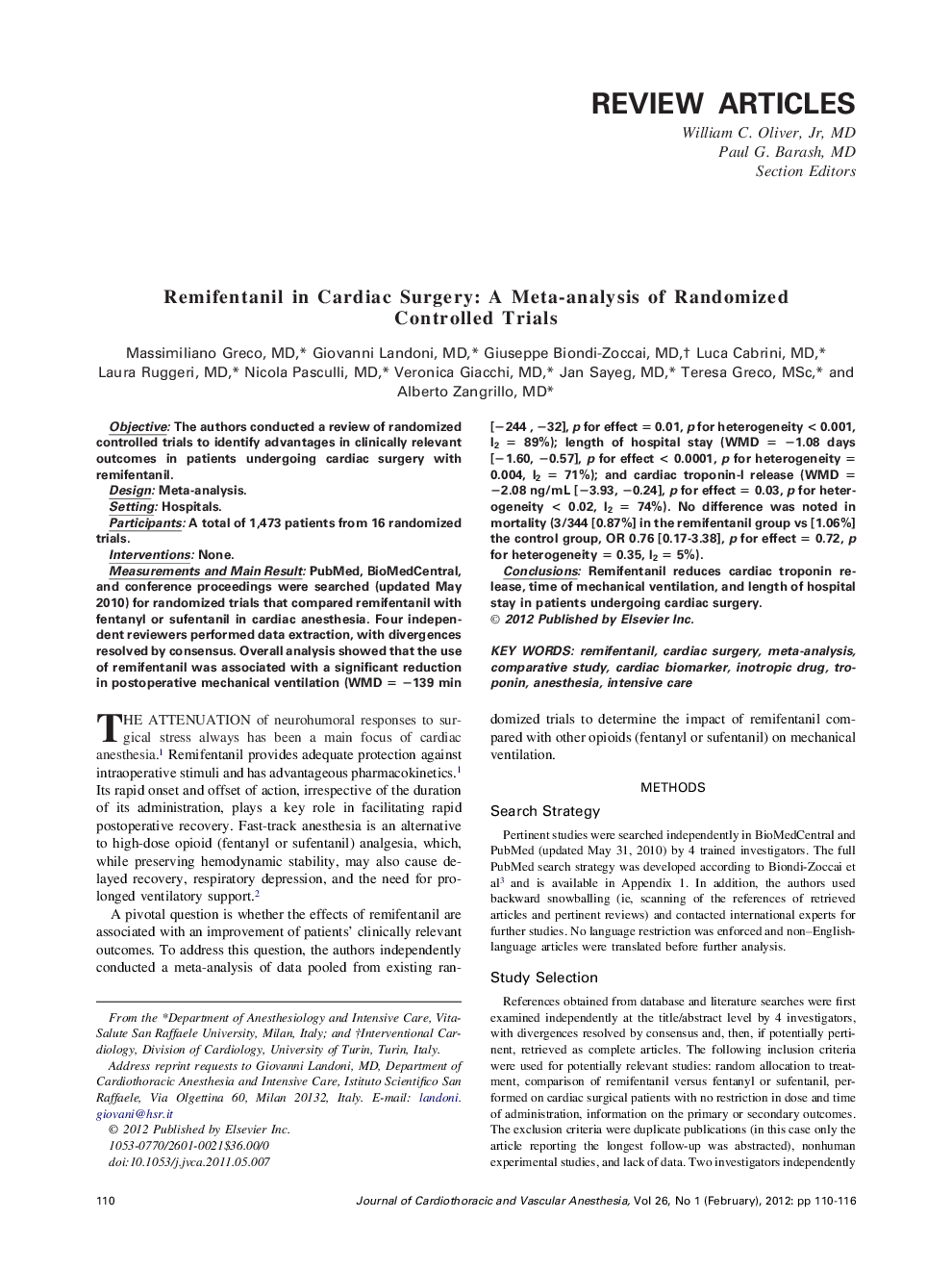| Article ID | Journal | Published Year | Pages | File Type |
|---|---|---|---|---|
| 2759626 | Journal of Cardiothoracic and Vascular Anesthesia | 2012 | 7 Pages |
ObjectiveThe authors conducted a review of randomized controlled trials to identify advantages in clinically relevant outcomes in patients undergoing cardiac surgery with remifentanil.DesignMeta-analysis.SettingHospitals.ParticipantsA total of 1,473 patients from 16 randomized trials.InterventionsNone.Measurements and Main ResultPubMed, BioMedCentral, and conference proceedings were searched (updated May 2010) for randomized trials that compared remifentanil with fentanyl or sufentanil in cardiac anesthesia. Four independent reviewers performed data extraction, with divergences resolved by consensus. Overall analysis showed that the use of remifentanil was associated with a significant reduction in postoperative mechanical ventilation (WMD = −139 min [−244, −32], p for effect = 0.01, p for heterogeneity < 0.001, I2 = 89%); length of hospital stay (WMD = −1.08 days [−1.60, −0.57], p for effect < 0.0001, p for heterogeneity = 0.004, I2 = 71%); and cardiac troponin-I release (WMD = −2.08 ng/mL [−3.93, −0.24], p for effect = 0.03, p for heterogeneity < 0.02, I2 = 74%). No difference was noted in mortality (3/344 [0.87%] in the remifentanil group vs [1.06%] the control group, OR 0.76 [0.17-3.38], p for effect = 0.72, p for heterogeneity = 0.35, I2 = 5%).ConclusionsRemifentanil reduces cardiac troponin release, time of mechanical ventilation, and length of hospital stay in patients undergoing cardiac surgery.
